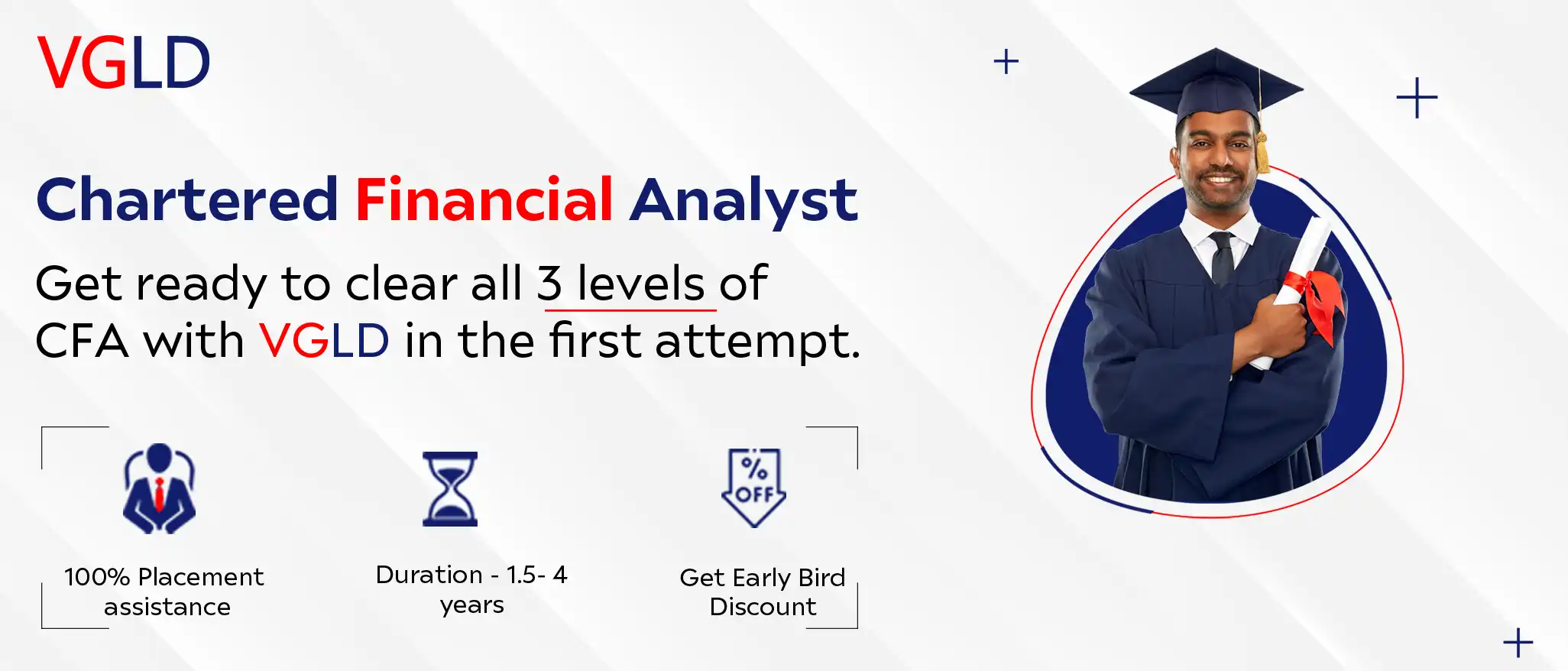What’s next after CA?
In India, becoming a Chartered Accountant (CA) itself is a mammoth task to overcome. It takes years of hard work, rigorous study, and a disciplined life to achieve the coveted title of being a Chartered Accountant. CA course develops excellent, world-beating skills in the fields of accountancy, taxation, auditing, and financial management. There is very less to argue with the acumen that a CA possess in these fields. A CA passing certificate opens doors to a glorious career as members can then choose from multiple job avenues.
But, is doing CA the end of this world? Answer is a big NO.
Firstly, there is no end to gathering more knowledge. In this ocean of knowledge, destination is dependent upon the hunger of a student. More the hunger, thirst to acquire new knowledge, more the number of courses available. Frankly speaking, there is no end to it.
Secondly, with increasing competition to get top flight jobs, companies are recruiting professionals who have something extra, i.e., X-factor. They prefer hiring candidates who can bring additional skills to the table, offer more than just one qualification. As a result, dual certification has become the order of the day.
Lastly, global certifications like Chartered Financial Analyst (CFA) and Master of Business Administration (MBA) gives your career global wings. CFA course will help you acquire skills that will climb the corporate ladder, faster and easier.
In this blog, we will take a deeper insight into why we think, doing CFA after CA is just the right thing to be considered right now.
Advantages of CFA + CA
While both, CFA & CA degrees have their own individual importance, having both of them is a deadly combination for the job market. Let us take a quick look on the major advantages of holding both CFA & CA degrees at the same time.
- Master of Finance – While CA provides you all the knowledge relating to accounting, taxation and auditing, a CFA degree meanwhile helps you acquire and apply financial analysis, financial management skills. As a result, you will be globally regarded as a Master in Finance.
- Abundant job opportunities – With skills of both worlds, candidates will be flooded with job opportunities. There would be hardly any job in the finance market that a CFA + CA holder would not be eligible for.
- Ease in CFA L1 exams – Chartered Accountants would find CFA Level 1 exams very easy to clear. More so subjects like financial reporting and analysis, derivatives and others which have been mastered in their CA Finals level.
- Global Career – A CFA degree gives wings to your global career aspirations. Being a global accreditation, candidates can literally apply for jobs all across the world with ease.
- Lucrative Profiles – Dream of working in profiles like Investment Banking, Portfolio Management, Wealth Management could finally see the light of the day.
- Offers from MNCs – Multinational Corporations keep vying for multi-talented professionals who can offer skills which can take their company to the next level.
- Path to CEO – Dual certification in CFA & CA will help you quickly cover the rungs in the ladder of becoming a CEO of your company.
- Mouth-watering Salaries – For obvious reasons, a CFA + CA holder, commands a hefty price in the job market and guess what – the companies are willing to loosen their purse and offer top notch salaries to keep their top employees happy.
Introduction of CFA
Conducted by The CFA Institute, it is globally considered to be a gold standard in the field of finance. The Institute aims to develop skills and acumen of its candidates to meet the growing demands of society by specializing in areas like financial analysis, portfolio, and investment management. The CFA Charter is one of the most sought-after accreditations in the world.
Being accorded with its coveted Charter, is a testament of expertise and top-level skills in investment analysis, portfolio management etc. CFA is also an internationally recognized degree thus giving its members and students all across the world an equal footing. In India, it is considered to be at par with NSQF (National Skill Qualification Framework) Level 9 out of 10 – indication of advanced knowledge and skills. In most other countries like USA, Singapore, Japan – it is considered to be at par with a Masters’ Degree.
Scope of CFA course
It is important to understand the scope of CFA course before jumping into a decision to undertake it. CFA course is divided into three levels namely Level I, Level II, and Level III. Across each these levels, candidates are tested in the most advanced technical and application skills required to excel in the financial industry. Some of the most famous topics covered across each level are Derivatives, Economics, Alternative Investments, Portfolio Management and Wealth Planning.
Exams are conducted round the year in an online mode at designated Procter exam centres. Apart from the metropolitan cities, candidates can appear for CFA exams across 16 cities including Tier 2 & Tier 3 cities like Bhopal, Bhubaneswar, Guwahati, Kochi, Indore. This provides students with an opportunities to prepare and appear for exams according to their schedules and time needs.
CFA Syllabus
CFA tests candidates on a variety of subjects to ascertain whether they are qualified enough to be the torch bearer of financial markets. Below are the topics that candidates are tested in CFA across each level. Level of depth, application of skills goes up across each level so that by the time you clear CFA Level III, you are an expert in everything related to financial management and advisory.
| Level I | Level II | Level III |
| Quantitative Methods | Quantitative Methods | Economics |
| Economics | Economics | Derivatives |
| Financial Reporting and Analysis | Financial Reporting and Analysis | Fixed Income |
| Corporate Issuers | Corporate Issuers | Equity Investments |
| Equity Investments | Equity Valuation | Alternative Investments |
| Fixed Income | Fixed Income | Portfolio Management |
| Derivatives | Derivatives | Ethical and Professional Standards |
| Alternative Investments | Alternative Investments | |
| Portfolio Management | Portfolio Management | |
| Ethical and Professional Standards | Ethical and Professional Standards |
CFA Registration and Exam Cost
The CFA Institute being a US-based organisation, accepts payment of registration and exam fees only in US dollars. Candidates will have to pay a one-time enrolment fee of USD 350 (around Rs. 28,000-30,000) to register for CFA exam and Level I exam. This is a non-refundable fee payable to the CFA Institute.
Subsequent successful registration at CFA portal, candidates may schedule their exam for relevant level and window of choice by paying fees of USD 900-1200 (around Rs. 70,000-1,00,000) depending upon the period by which you apply by.
Essentially, below are the two exam registration periods with exam fees varying considerably. Be wise and plan to take advantage of price advantages.
- Early Registration – Registration typically opens about 10 months before exam date and closes three months later. For example, early registration for May 2023 opened on 9th August 2022 and closed on 9th November 2022. All registrations for Levels I & II within this time period costs USD 900 (around Rs. 70,000).
- Standard Registration – Standard registration opens after close of early registration period and remains open till around 4 months before exam date. Registration fee during this period increases by USD 300 for Levels I & II costing USD 1,200 (around Rs. 1,00,000).
EMI Options: For candidates registered in India, the CFA Institute has recently come out with an EMI facility as well by partnering with education loan provider – Eduvanz. Candidates can avail this option by selecting the option of ‘Pay by Invoice’ as the preferred method of payment.
Available Exemptions
The CFA program currently does not have any scheme on offering exemptions to students with varying level of academic background, i.e., everyone throughout the world needs to go through the same journey of Level I > Level II and then Level III.
CFA Level Details
CFA course is well-defined and making it a very transparent exercise for all candidates, all over. Below are few quick details on the various levels of CFA.
| Level I | Level II | Level III | |
| Registration Requirement | CFA Enrolment requirements | Pass Level I | Pass Level II |
| Question Format | MCQs | Vignette-supported MCQs | Vignette-supported essays and MCQs |
| Results Timeline | Within 60 days of exams | Within 60 days of exams | Within 90 days of exams |
| 10-year avg. pass rate | 41% | 45% | 52% |
Job Profiles
CFA + CA, being two renowned professional degrees, provides qualified candidates with a plethora of job opportunities in their career. Successful professionals can look forward to below types of job profiles:
A: Transaction-based Opportunities
- Investment Banker
- Chief Investment Officer
- Sales & Trading
- Investment Strategist
- Stockbroker
- Portfolio Manager
B: Front Office Opportunities
- Financial Analyst
- Private Wealth Manager
- Investment Consultant
C: Quantitative and Analytical Opportunities
- Equity, Fixed Income Research Analyst
- Risk Analyst and Manager
- Forex Trader
- Data Scientist
Biggest Employers
Some of the biggest employers of CFA & CA, dual holders, in India are listed below.
- JP Morgan Chase & Co.
- Bank of America
- Goldman Sachs
- Citigroup
- Morgan Stanley
- BCG
- McKinsey
- Nomura
- HSBC
- United Bank of Scotland
- Wells Fargo
- HDFC Group
- Kotak Mahindra Group
- ICICI Group
- Bloomberg
- SBI Group
If you have any further doubts or want to check your eligibility, please feel free to Contact VG Learning Destination @ +91 9700000038 or mail us at contact@vgldi.com



